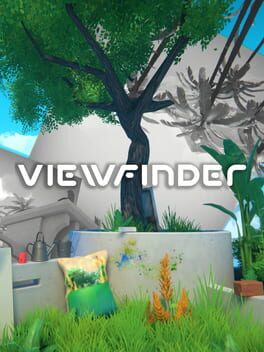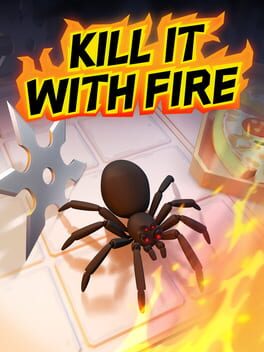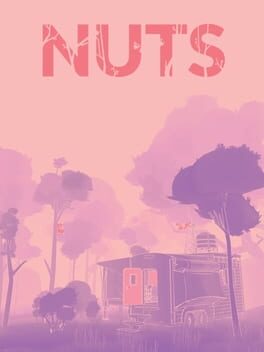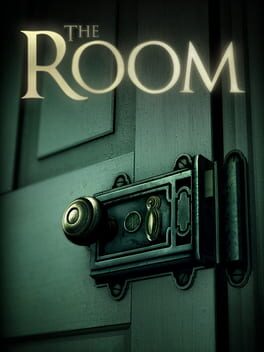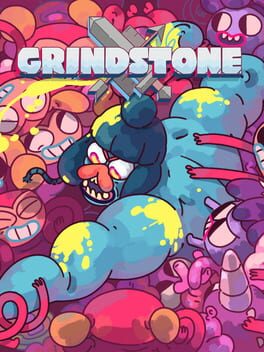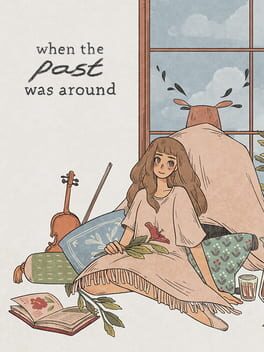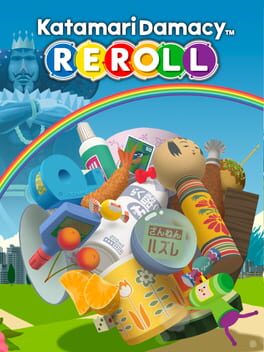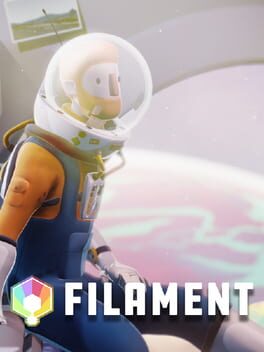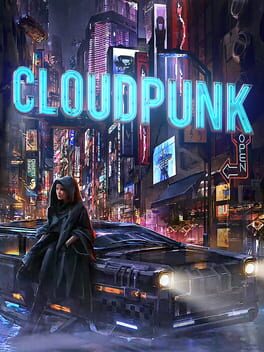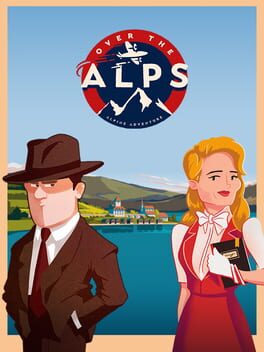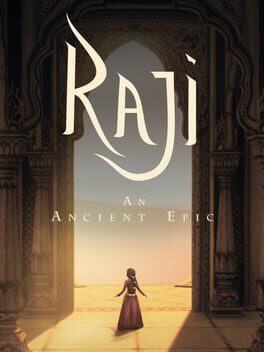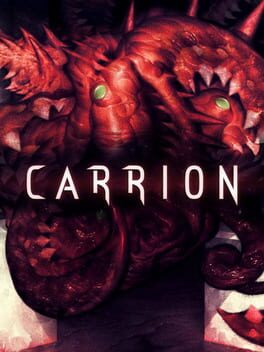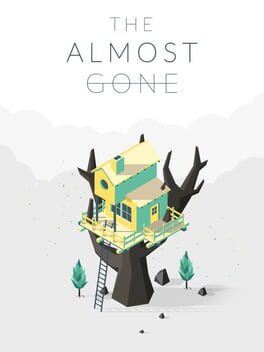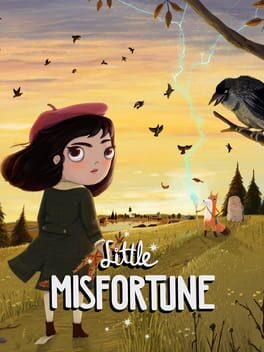tim_theuknown
BACKER
This games is build with passion, patience and silliness in mind. Based only on medieval and renaissance paintings this point and click adventure is a feast of goofiness. Following the quest of Bellona to kill Saint Peter and bring back war, we encounter several biblical figures and motives, entangled in quirky situations ranging from face palming stupid to meta-clever. Solo developer Joe Richardson is not shy, to break the fourth wall to make fun not only about the protagonist, but the developer and the player as well. The pretty flat and direct humor a la Monty Python meets a unique and elaborate art-style, which makes you shake your head more than once and if you look closely, is loaded with so many hidden references. Gameplaywise it is a basic point and click, with solid puzzles and some stretches of serious backtracking. The characters we meet are simultaneously tragic and silly and the music we are listining is on the edge of authentic and utterly nerve-racking. When you pick up this game, expect a self-referential black humored satire, which focuses on delivering a unique style to cover up a stupid plot and a basic gameplay experience. But man, this game will stick to your brain, I can guarantee!
2023
Viewfinder is a first person adventure, which throughout it’s 4-5 hours of playthrough combines mind-bending puzzles with a yawn-inducing and shallow heroic quest, which you quickly try to ignore, by focusing on the next brain-twisting puzzle ahead of you.
You play as a silent and bodiless protagonist, which is thrown into a simulation, where you shall find a miraculous cure for the gruesome climate change that endangers the world outside of the simulation. Jumping from level to level you unravel the past of a quartet of scientists, who once inhabited this simulated environment willing to invent the so-called weather disruptor, the key to prevent the world from entering the final apocalyptic stage. The desperate scientific odyssey of this inexplicably vanished cast of characters is told via audio-logs scattered throughout the various levels.
But this underwhelming plot is luckily only the underlying premise, giving you a loose agency to move from puzzle to puzzle. In its core Viewfinder is a puzzle game heavily inspired in tone, look and atmosphere by other simulation and perspective games like Portal, Superliminal, Stanley Parable or the underrated Moncage. The gameplay loop works within the good old problem-solution scheme: You dive into a level that confronts you with an environmental puzzle, which you have to beat by gradually abandon your knowledge of physics, perspective and space to overcome mind-bending obstacles. New mechanics are constantly added to keep things fresh and luckily these new elements are always taught in-action, which results in not feeling restrained by boring and disruptive tutorial sections.
A clever decision is the implementation of a rewind-system: Every time you feel stuck or simply want to explore a new direction, you hit up the rewind button and immediately jump back to the intended spot. This feature prevents nasty trial-and-error sessions and supports the sublime and extraordinary sense of flow the game inherits. The puzzles are well crafted, creative, at times forcing you to think hard, but nearly always leave you with a sense of satisfaction. The levels are short and snackable, sometimes tickeling your wish to rush or speed run them. For my taste, especially with the rewind feature as a safety net, they could have cranked up the complexity and difficulty of the individual levels, especially in the last third. Even with its obvious inspirations by other games of the genre, it never feels like a copy-cat and succeeds in claiming its very own and unique spot among them.
Most of the time, you are not alone on this journey: You quickly encounter the cat hologram Cait, reminding me of the adorable Dog-Automata Camus from the charming adventure Cloudpunk. Cait functions as a narrator and commentator, either complimenting you on a clever solution or feeding you with story bits. He is the red-string, inducing your journey with meaning and reminding you of your task: safe the burning world. Besides the endless ambient soundtrack echoing in the background or the some-what annoying phone-calls from your fellow researcher, Cait is the only encounter you’ll make in this mostly empty simulation.
Yet the constant presence of Cait illustrates the absence of yourself as a character, which can take decision with consequence. It creates and empowers the dissonant feeling of being yet again this silent protagonist unable to even giving an answer or at least expressing a glimpse of unwillingness throughout your journey. At times I could not distinguish my character from the stereotypical corpo-controlled puppet, we embody so often in these kinds of games. And while the puzzle design continuously stretches or even surpasses the boundaries of imagination, the story lacks of bravery to break or at least challenge the rules of the simulation itself. Yes, I get it, there is no world left to return to, but yet this linear and flow-oriented approach contains the bitter-sweet taste of obedience (and lazy storytelling).
Nevertheless, its strength is to be found in nearly every level it contains. Experimenting with all sorts of perspectives, duplication tools or the right use of the your personal viewfinder is a continuous delight, that sparks joy and surprises you non-stop. And yet I had hoped for a less disjointed and a more cohesive experience. What you can expect, is a cleverly and incredibly smart puzzle game, that shines in the moments you are focused to not get trapped in your conventional perception of reality, but appears a bit too desperate in squeezing in a plot of being - yet again - the savior of the world.
You play as a silent and bodiless protagonist, which is thrown into a simulation, where you shall find a miraculous cure for the gruesome climate change that endangers the world outside of the simulation. Jumping from level to level you unravel the past of a quartet of scientists, who once inhabited this simulated environment willing to invent the so-called weather disruptor, the key to prevent the world from entering the final apocalyptic stage. The desperate scientific odyssey of this inexplicably vanished cast of characters is told via audio-logs scattered throughout the various levels.
But this underwhelming plot is luckily only the underlying premise, giving you a loose agency to move from puzzle to puzzle. In its core Viewfinder is a puzzle game heavily inspired in tone, look and atmosphere by other simulation and perspective games like Portal, Superliminal, Stanley Parable or the underrated Moncage. The gameplay loop works within the good old problem-solution scheme: You dive into a level that confronts you with an environmental puzzle, which you have to beat by gradually abandon your knowledge of physics, perspective and space to overcome mind-bending obstacles. New mechanics are constantly added to keep things fresh and luckily these new elements are always taught in-action, which results in not feeling restrained by boring and disruptive tutorial sections.
A clever decision is the implementation of a rewind-system: Every time you feel stuck or simply want to explore a new direction, you hit up the rewind button and immediately jump back to the intended spot. This feature prevents nasty trial-and-error sessions and supports the sublime and extraordinary sense of flow the game inherits. The puzzles are well crafted, creative, at times forcing you to think hard, but nearly always leave you with a sense of satisfaction. The levels are short and snackable, sometimes tickeling your wish to rush or speed run them. For my taste, especially with the rewind feature as a safety net, they could have cranked up the complexity and difficulty of the individual levels, especially in the last third. Even with its obvious inspirations by other games of the genre, it never feels like a copy-cat and succeeds in claiming its very own and unique spot among them.
Most of the time, you are not alone on this journey: You quickly encounter the cat hologram Cait, reminding me of the adorable Dog-Automata Camus from the charming adventure Cloudpunk. Cait functions as a narrator and commentator, either complimenting you on a clever solution or feeding you with story bits. He is the red-string, inducing your journey with meaning and reminding you of your task: safe the burning world. Besides the endless ambient soundtrack echoing in the background or the some-what annoying phone-calls from your fellow researcher, Cait is the only encounter you’ll make in this mostly empty simulation.
Yet the constant presence of Cait illustrates the absence of yourself as a character, which can take decision with consequence. It creates and empowers the dissonant feeling of being yet again this silent protagonist unable to even giving an answer or at least expressing a glimpse of unwillingness throughout your journey. At times I could not distinguish my character from the stereotypical corpo-controlled puppet, we embody so often in these kinds of games. And while the puzzle design continuously stretches or even surpasses the boundaries of imagination, the story lacks of bravery to break or at least challenge the rules of the simulation itself. Yes, I get it, there is no world left to return to, but yet this linear and flow-oriented approach contains the bitter-sweet taste of obedience (and lazy storytelling).
Nevertheless, its strength is to be found in nearly every level it contains. Experimenting with all sorts of perspectives, duplication tools or the right use of the your personal viewfinder is a continuous delight, that sparks joy and surprises you non-stop. And yet I had hoped for a less disjointed and a more cohesive experience. What you can expect, is a cleverly and incredibly smart puzzle game, that shines in the moments you are focused to not get trapped in your conventional perception of reality, but appears a bit too desperate in squeezing in a plot of being - yet again - the savior of the world.
2020
2021
2012
2019
Simply my guilty pleasure game of 2021. The game masters to spice up the tile-matching genre leading to grinding up the mountain non-stop. The quirky and funny animations help as well to keep you engaged. I had to wake myself up to delete it from my phone, otherwise I can guarantee, that I would be still stuck in the addiction loop.
This game is pure silliness mixed with a whole lot of enjoyment. You just can't stop growing your pile of stuff you are collecting. It's quirky and gamey and is still playable 14 years after its original release. Sometimes the time limit is set extremely strict, but yet it succeeds in being fair to beat level after level.
2020
2020
Cloudpunk caught me by surprise. After being close to put it down in the first hours, I surpassed the point of being intrigued, by how things are going to shape up for us. As a delivery-driver, we are hovering through the cyberpunk-metropolis of Nivalis trying to make a living, getting caught up in criminal activities and ticking boxes. The gameplay loop is plain and simple - pick up package, drive to location and deliver. But the conversations with our dog automata Camus spice up the long, repetitive rides. The encounters are meaningful and the writing is surprisingly good. Even the choice of an edgy voxel-look does not crash with the consistent atmosphere of never-ending night and rain. A game worth checking out, especially if you want to get immersed in a neon-enlightened and laidback adventure.
2020
The story and set-design of Raji was a delight at times, especially due to the fact of being developing by an indian indie studio, telling their folklore first hand. But as a game it gets boring, tedious and repetitive over time, losing my attention in faceless enemy-waves and lame and non-challenging combat situations. The bosses are neat, but easy to master. You can feel the lack of monetary foundation, that maybe could have pushed this game in the right direction.
2020
Carrion absolutely delivers on its premise reversing the classic horror paradigm by becoming the hunting monster. It's bloody, gory, with cool and flashy dark and red-dominating pixel art. Yet it lacks of impact and originality, becoming boring after a few hours in. From my point of view, the gameplay does not explore its possibilities enough, most times, you are simply to powerful and in the last third, I noticed myself rushing through the levels with no want to produce more blood-imploding corpses.
2020
2019
You don't often find these kind of quirky, dark-humored meta-adventure, that are enjoyable from start to finish. Little Misfortune is sometimes a bit poor in gameplay offerings and is not loaded with a lot of surprising twists and turns. But it succeeds choosing a child protagonist by taking her struggles and anxietys serious, yet still delievering a goofy and charming back-and-forth between Little Misfortune and the tempting narrator.

